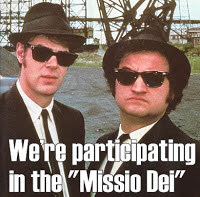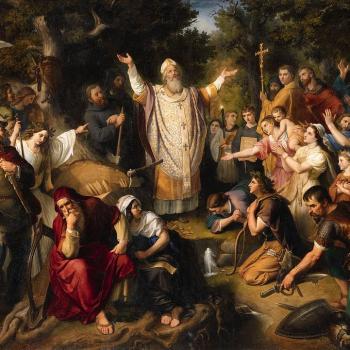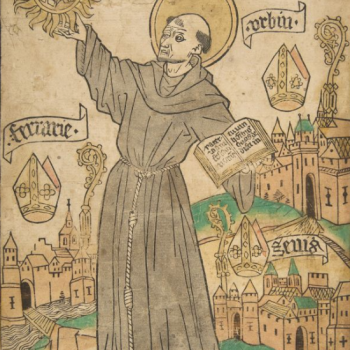The concept of “Missio Dei” is roughly translated this means the initiation of God (as opposed to) man in the mission of redemption in the world. It’s a theological perspective that gained a good deal of traction in the later 20th century it helps frame the narrative we see in the scriptures as something we enter into rather then something we bring ourselves.
Few biblical stories demonstrate “Missio Dei” as clearly as the story of the Exodus. We all know the story of the plagues and the Red Sea. Today I would like to focus on the first five chapters of the book of exodus and bring some light not only to the heavy hitters (Moses, Pharaoh, Aaron) but highlight the ways in which individuals.
why?
Because no matter where we look in the scriptures and in our lives “Missio Dei” involves a personal God dealing with individual persons.
Exodus 1:
I think it’s very interesting that the first words of Exodus are concerned with naming. The scriptures make it clear that we are picking up in a story of people who met God not a philosophy about God. It is not God who Pharaoh is said not to know, but rather Joseph, who God had used (v8).
Question 1: Do you think that knowing how God has moved in the past is important to our actions today? Could Pharaoh have spared his people the heartache of the plagues if he had simply had invested more in learning history?
God shows up in Chapter 1 mostly though the activities of the midwives Shiphrah and Puah we see him bless them as they act out of a deep respect for who God is (v17,21) and what he had done. They are participators in the “Missio Dei” where Pharaoh is disjointed from what God has done.
Exodus 2
In this chapter Moses is born. He is spared from death by being brought into the house of Pharaoh through a set of circumstances that are miraculous in nature. He flees as a fugitive to and finds a home as a sojourner in Midian.
Interestingly all this happens without God being mentioned at all.
However the passage ends with an interesting statement. It tells us that it was at this time that God “looked upon his Children and was made known to them (25).” It’s interesting that the passage doesn’t tell us how God was made know, it tells us the story of a family which is used to bring a person to a certain place.
Question 2: How was God made known to his children? Have you ever wondered if God has worked in your life to bring you to a place to make himself known?
Chapter 3-4:16
Chapter three tells us the story of the Burning Bush.
In this passage God’s hand is revealed and his plan to redeem his people from slavery is made clear.
This difficult part of this passage is not finding where God is moving, it’s realizing his call is not always a very nice thing for those he calls.
Moses resists his call with a great deal of excuses and objections (v 3:11,13 & 4:1,10) But God insists on his plan.
Question 3: Have you ever experienced a time where it seemed God had plans that went against the plans you had?
Following the “Missio Dei” of God means you may be called out to places you are not comfortable with.
Chapter 4-5
This passage deals with what happens when Moses leaves. In this passage the missio dei is united with the will of Moses. The person that God had set out decides to participate in God’s call.
The story follows in the way you might expect it to for the most part (I must mention there is a strange place where Moses wife preforms an emergency circumcision to save Moses’ life). Moses goes to Egypt and God provides for him in all the ways he promised he would.
However just because God provides does not mean Moses has it easy. On the contrary the very people Moses came to help see him as an enemy (v5:21).
Question 4: Does it ever seem like doing things God’s way makes it more difficult.
There is a strange idea I have run into about the Missio Dei often people think that it simply means doing what people in a culture WANT you to do. This however is not the case. Missio Dei acknowledges that God has a relationship with all people and is active in their context. Sometimes that activity might nat be taken with Joy.
As we can see in Exodus 5 God’s plan for his people made Moses upset, Pharaoh upset (v5:6), and even the people of isreal upset. And it’s not just Moses who is called into difficult situations. Look at the call of John the Baptist (which got his head cut off in Matthew 14:1-12), or Jeremiah (who was thrown into a cistern Jerimiah 38:7). Most of all we should look a Jesus himself who took on death to reconcile us (Romans 5:10).
Don’t expect joining in the “Missio Dei” to be easy!














